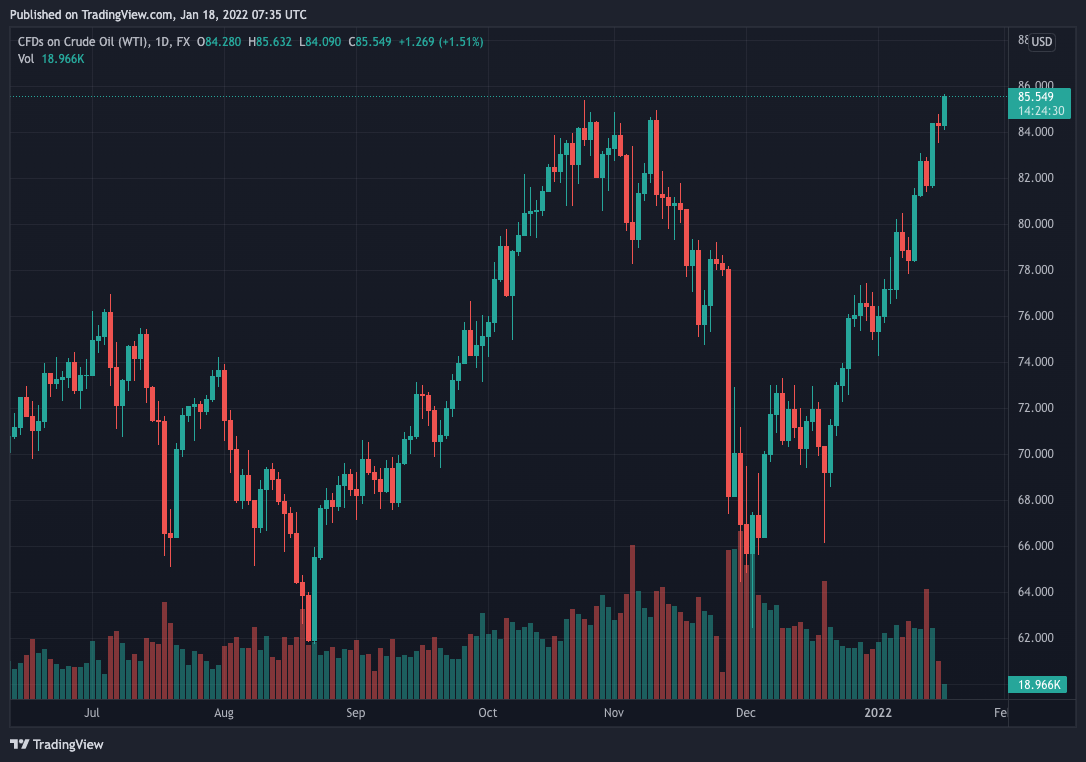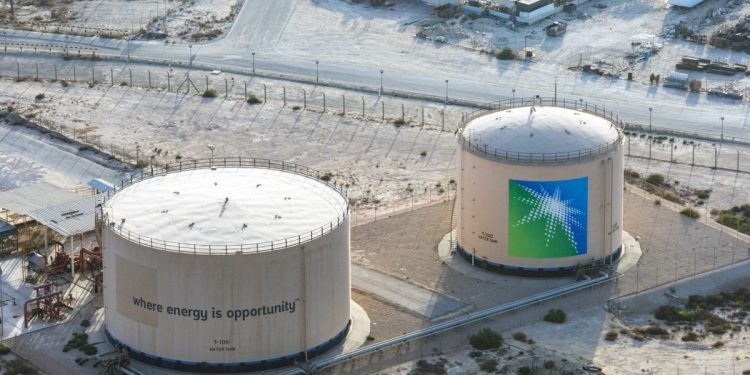Oil prices rose more than $1 on Tuesday to a more than seven-year high on worries about possible supply disruptions after Yemen’s Houthi group attacked the United Arab Emirates, escalating hostilities between the Iran-aligned group and a Saudi Arabian-led coalition.
Brent crude futures rose 85 cents, or 1%, to $87.33 a barrel by 0525 GMT, after earlier hitting a peak of $87.55, their highest since Oct. 29, 2014.
U.S. West Texas Intermediate (WTI) crude futures jumped $1.13, or 1.4%, from Friday’s settlement to a more than two-month high of $84.95 a barrel. Trade on Monday was subdued as it was a U.S. public holiday.

The new geopolitical tension added to ongoing signs of tightness across the market,” ANZ Research analyst said in a note.
After launching drone and missile strikes which set off explosions in fuel trucks and killed three people, the Houthi movement warned it could target more facilities, while the UAE said it reserved the right to respond to these terrorist attacks.
Crude has made a red-hot start to the year with the market tightening on robust demand and outages at producers including Libya. Segments across the oil complex are showing strength, from diesel to jet fuel, which is soaring in Europe as air travel withstands the omicron impact. OPEC is set to release its monthly report later Tuesday, providing a snapshot of the market.
“Sentiment in the market remains constructive, and the attack on the UAE has offered only a further boost to prices. Supply disruptions coupled with firm demand has meant that the oil market is tighter than expected.” Warren Patterson, the head of commodities strategy at ING Groep NV.
UAE oil firm ADNOC said it had activated business continuity plans to ensure uninterrupted supply of products to its local and international customers after an incident at its Mussafah fuel depot.
Read also; Oil Prices rise to $ 80.30 per Barrel-CBK Report.




